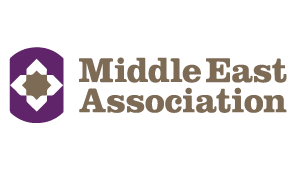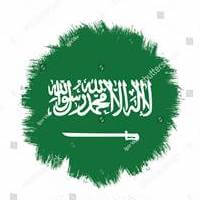Oil and gas
Saudi Arabia is a global energy superpower and its economy remains heavily reliant on the petroleum sector, which accounts for roughly 75% of budget revenues and 90% of export earnings. According to the Organisation of the Petroleum Exporting Countries (OPEC), Saudi Arabia possesses 18% of the world’s proven petroleum reserves and ranks as the largest exporter of petroleum. The Kingdom has a production capacity of 12.5m barrels per day (b/pd). Saudi Arabia is also home to the world’s largest oil company, the Saudi Arabian Oil Company (Saudi Aramco).
Research carried out by the Oxford Business Group (OBG) in 2012 highlights that Saudi has invested US$40bn per annum in the sector to increase production capacity, with plans to invest a further US$125bn over the coming five years. The focus, according to OBG, will increasingly shift towards the downstream sector with significant demand coming from markets in Asia. Opportunities for firms involved in the hydrocarbons sector, at all levels, are therefore significant and particularly for firms which are able to bring to bear new technologies that will help improve efficiency.
Developing the natural gas sector is a priority as the country seeks to lessen its dependency on oil and power its rapidly growing industrial sector. Demand for electricity is predicted to grow by 9% per year. Saudi is also blessed with extensive reserves, with BP’s 2012 Statistical Review of World Energy claiming that Saudi has 8.2 tcm (trillion cubic metres) of proven reserves of natural gas (3.9% of world total) and produced 99.2 bcm (billion cubic metres) in 2011.
Education
In Saudi Arabia’s record 2013 budget of 820 billion riyals ($219 billion) in planned spending, 25% has been earmarked for education, training and manpower. The money will contribute to programmes aimed at reforming the current education system, building new educational institutes and funding overseas degrees and training programmes for Saudi students. The primary focus regarding the education sector is to educate young Saudis to fill jobs which are currently being held by expatriates. Despite this budget figure, it’s vital for Saudi Arabia to attract a substantial amount of foreign investment and skills transfer to meet rapid growth demands.
Security and Defence
Defence & Security sector is one of the important sectors in Saudi Arabia, providing enormous opportunities for British companies. The total combined market size for the commercial security and safety sector is estimated at more than SR 4.5 billion (US$1.2 billion). Security is a fast growing sector which is currently estimated to be worth between SR 2.27 – 2.51 billion (US$605 – $670 million.) Of this figure, around SR 318.8 million (US$85 million) accounts for physical and electronic security for the banking sector. The balance is for government, industrial, retail, residential and commercial sectors. The Saudi government’s defence budget continues to grow, standing approximately at SR 153.8 billion US$ 41 billion. The Saudi’s defence relationship with the UK is stronger than ever, with the order for 72 Typhoon fighter aircraft ensuring this relationship will continue for many years to come.
Construction
Saudi Arabia represents the largest construction market in the Middle East, and one of the fastest growing construction markets in the world. They key areas that are currently being focussed on are improving infrastructure, transport, education and real estate.
Financial and Professional Services
The Saudi banking sector is stable and has largely withstood the global financial crisis. The Saudi Stock Exchange (Tadawul) is the largest in the Gulf region with a market capitalisation of around US$325 billion. The Stock Exchange is keen to develop the derivatives market and to start up a futures market other than just for oil.
Healthcare
Healthcare is a thriving sector as the government continues to finance healthcare for its rapidly growing population, which is increasing by more than 3% each year. 12.2% of the 2013 budget is expected to be spent on healthcare with plans to build 19 hospitals and five ‘medical cities’ announced. Saudi Arabia is the largest market for medical equipment and healthcare products in the Middle East. Diabetes, heart disease and obesity have reached epidemic proportions and are a cause for serious concern.
ITC
Saudi Arabia is the region’s largest IT market with strong growth in consumer and enterprise end markets. Huge public investments on infrastructure, health and education have paved the way for advanced technology and security systems in the country with the government planning for the industry to raise its contribution to the GDP by 20 percent by 2020. Overall IT spending in Saudi Arabia is set to hit $5.7 billion by the end of 2014 from around $3.5 billion in 2010, at a compound annual growth rate of around 13 percent. Significant unmet demands for web-based and mobile services and increased enterprise and government commitment for web-based services provide large-scale opportunities for contractors and service providers.
Mining
Mining is a sector of significant growth and investment in Saudi Arabia, with official statistics released in November 2012 showing that the Kingdom’s total investments in mining have amounted to US$50bn. The Kingdom of Saudi Arabia possesses large deposits of various minerals including bauxite, copper, gold, iron, lead, silver and tin as well as non-metallic minerals. The sector is regulated by an arm of the Ministry of Petroleum and Mineral Resources, the Deputy Ministry of Mineral Resources (DMMR).
In 1997 the Kingdom established the Saudi Arabian Mining Company (Ma’aden) as a state-owned enterprise with the aim of catalysing the industry and forming joint projects with foreign partners in a similar manner to Aramco for petrochemicals and the Saudi Basic Industries Corporation (SABIC). Ma’aden’s 2012 Annual Report registered record sales of 5.6bn Saudi Riyals, up from 1.5bn SR in 2011. Phosphate fertilizer represented the mainstay of total sales (52%) followed by ammonia (28%), gold (18%) and industrial minerals (2%).
Foreign investment in the sector is regulated by the 2004 Mining Code and some 1,700 mining licenses covering 73,000 square kilometres of land have already been awarded. For instance, in December 2012 it was announced that Betchel had been awarded the overall program management contract for the King Abdullah project for Waad Al Shamaal City development by Saudi Arabian Mining Company (Ma’aden). When complete, the mining complex will feature seven ‘world scale’ phosphate processing plants. Betchel is also managing the construction of a 740,000 tonne bauxite smelter in the Ras Al Khair Minerals Industrial City.
Industrial Cities
Today, industrial products make up more than 90 percent of the Kingdom’s non-oil exports. Saudi Arabia exports petrochemicals, plastics, metal goods, construction materials and electrical appliances to more than 90 countries.
The Saudi Industrial Property Authority (MODON), is responsible for developing and supervising industrial land in the Kingdom. Their aim is to promote and regulate Industrial Estates and Technology Zones and to encourage the private sector to become involved in their development and operation.
Since it was created in 2001, Modon has been working towards a Saudi development vision for the 21st century. They are currently building 6 new industrial cities and have expressed an interest in dealing with UK consultants for master planning, design, operation and maintenance, and facilities management.
Economic Cities
In addition to the sectors and industrial cities mentioned above, Saudi Arabia is investing billions of dollars into the creation of Economic Cities in different regions of the country. The cities provide attractive investment platforms for foreign companies. Each is designed to maximise investment potential in all sectors and deliver huge advantages to business located there.
The cities will promote economic diversification, create over a million new job opportunities, homes for 4-5 million people, and contribute an estimated 150 billion dollars to Saudi GDP.
- King Abdullah Economic City – Rabigh (near Jeddah)
- Prince Abdul Aziz bin Mousdaed Economic City – Hail
- Knowledge Economic City – close to Al Madinah
- Jazan Economic City – close to Jazan City
- The Jubail Industrial City which has dozens of factories and industrial facilities, including a desalination plant, a seaport, a vocational training institute and a college.
- The Yanbu Industrial City on the Red Sea has a modern port, refineries, a petrochemical complex and many manufacturing and support enterprises.



